A beloved Qatari chef, known for her traditional comfort food, Aisha Al Tamimi shares her experience with breast cancer to provide hope for those who may be facing a similar journey.
Aisha Al Tamimi had no signs of cancer before she received her diagnosis, nor was she complaining of any pain or discomfort. It was during an unrelated appointment that a mammogram revealed her darkest fears.
“She told me that there was a small cancer in my left chest and it was a thunderbolt for me. I felt a great darkness in front of me, and I cried as if I was crying for the first time in my life”.
A self-confessed workaholic driven by her passion for cooking, Aisha began hosting shows on television in 2006, and has since published six cookbooks. She travelled frequently for her work, showcasing Qatar’s local cuisine at many international events and festivals. But all this had to be paused in light of her cancer diagnosis.
Soon after, Aisha underwent surgery to remove the tumour, which was thankfully still small due to its early detection. She also started radiotherapy two months later to eliminate any remaining cancer cells. It was at this point that Aisha decided not to let the cancer take over her life, and tried her best to look for the positives.
“I began to return to my previous nature. I was practicing my job as a chef and at the same time, I continued my treatment in the hospital. Praise be to God, I was the person who drove positivity for many of the patients in the hospital,” says Aisha.
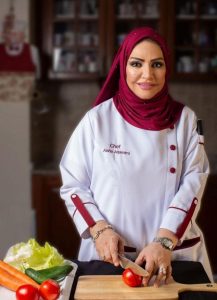
Determined to overcome the challenges of cancer, Aisha soon picked up her old hobbies. Prioritising her happiness and doing what she loved helped her to move forward, despite the severity of her situation.
“I am by nature a person who loves life and work, so I was able to overcome the disease,” she says.
Aisha was quick to share her story of recovery, hopeful that she could inspire and give courage to many of those that find themselves in the same position as her. She became actively involved with Qatar Cancer Society and Screen for Life’s campaigns to raise awareness for breast cancer in Qatar.
“I loved sharing my story so that others can benefit from it. Illness can be the beginning of a life full of successes and hope,” Aisha says. Despite the hardships she has faced, Aisha continuously chooses to see the bright side, “my story with the disease gave me many positives and success”.
Hopeful as ever, Aisha is excited for her future and is ready to make every moment count. “I live a positive life, praise be to God, and I love my work. God willing, soon I will publish my seventh cooking book”.
Sondra Hope is a nutrition coach, fitness trainer, business owner, proud mother, and cancer survivor. She could not have predicted that any of these would be how she would come to describe and define herself, but everything changed at a doctor’s appointment when she was twenty-four years old.
“It started with me feeling a small lump in my breast, but I didn’t pay much attention to it since I was so young. A few months later, I went to a doctor for a check-up and asked her to have a look at the lump. Following that, everything happened so fast. Within two weeks, I went in for a double mastectomy”.
“At first, I was angry and frustrated that there were so many things out of my control happening in my life,” Sondra recalls. “Luckily, I realised I could channel this energy towards things I can control, such as my attitude, my nutrition, how I treat my body, and the awareness I can raise”.
Over the following years, doctors warned Sondra that she would not be able to get pregnant as a result of her treatment. But in 2012 she gave birth to her daughter, to her driving force that continues to motivate her daily: “I found my ‘why’, the reason why I should get up when my body and mind no longer can. I found the reason why I have to fight”.

Sondra takes a holistic approach to health, with a strong belief that the mind and body can, and must, work together. “The mental and emotional aspect of health is very overlooked. That’s why I decided to enrol to qualify as a Wellness coach.”
Sondra wanted to use her own experiences to be able to guide others through the “lonely experience” that cancer can be. “Emotionally, we tend to keep the fear and insecurity inside us to protect those we love. If we do not find a way to balance it out or release those feelings, it can be a despairing place to be”.
Sondra’s business ‘Yala Healthy’ was founded on her belief in nutritious, natural products promoting a longer, healthier life. The company provides snacks, raw shea butter, and home-made kombucha to the local market, and the ‘Yala Healthy’ community consists of those in Qatar who share a passion for healthy living.
“Seeing my clients step outside their comfort zones, become stronger, celebrate non-scale victories, and just being happier within themselves; that is what pushes me to get up and keep fighting.”
In light of Breast Cancer Awareness Month, Sondra wants to draw attention to the importance of early detection, getting screened, and tested; “younger people continue to be diagnosed, including men.”
“On top of that, I believe we need to empower people to take control of their own health once diagnosed. I know so many people that sit back and go with whatever has to happen, thinking there is nothing they can do from their side. I say, take control of your health! Research your chemotherapy regimen. Make healthier food choices. Move! Celebrate life!”
Georgetown University in Qatar’s Mental Health Society
Coronavirus has accelerated the ongoing digital revolution, with connections and conversations increasingly taking place online. Like many others, students worldwide have turned to digital solutions to stay connected to their friends, families and studies. This is an effective way of maintaining communities during this time, but can be a strain to physical and mental wellbeing if not properly managed.
Georgetown University in Qatar’s Mental Health Awareness Society, a student community dedicated to communal support and changing the conversation about mental health, has been a lifeline for many. Through their events, support groups, and social media network, their aim is “to play a part in ensuring that people begin to realise the importance of mental health, so that they not only start to take care of themselves but their friends and family as well”.
“It is very uplifting to have a community like this during these times, because even though it might get stressful and overpowering, I know that I can also talk to the fellow members who might be going through the same or similar situation,” says member Salome Mamuladze.
Some of the society’s members have shared how they are navigating the new normal, while prioritizing their health and wellbeing.
Yasmina El Argoubi thinks planning your day in advance is essential, as having time dedicated to both work and play builds a healthy balance and routine that is easy to follow. “I try to keep doing activities I enjoy and especially do a type of exercising every day,” she says.
In order to stay productive and motivated, Salome has learnt that setting small, daily goals gives her the drive to stay on course. “I noticed that when I prioritize my mental health and wellbeing, I become more optimistic, hopeful, and productive”.
It is also vital to recognise when you need a break and to “give yourself permission” to take one without feelings of guilt. “Don’t forget that physical health is interconnected with mental health. Therefore try to keep active, stay hydrated, and eat well,” Salome explains.
Salome has also felt the tiring effects of spending too much time online. She recommends devoting time in your day to other activities such as practicing art, playing board games with family or exercising.
Anam Fatima has found a new way to unwind when she feels stressed, by practicing meditation. Both meditation and exercise has been “a great way to freshen up and have the energy to get through the day,” she reflects.
All three members also noted that no one is alone in this journey. “We are in this together. Use this time to get to know yourself and discover the things you like,” says Yasmina.
“The pandemic brought with itself hardships, but also opportunities for us to self-reflect. Don’t be too hard on yourself and remember to just work at your own pace,” explains Anam.
What started out as an exercise in self-reflection during a difficult period turned into a transformational new career for Asmaa.
Asmaa Al Kuwari was always interested in self-development and reflection, but it was only after getting involved in a life coaching training programme that this interest turned into a true passion.
“After that, I clearly knew that not only had I found the value of having a life coach in my life, but determined that being a life coach is my passion and what I wanted to do for the rest of my life. I wanted to support people become their best versions and live their lives with purpose”.
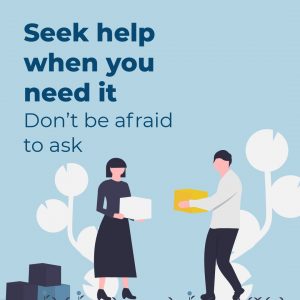
Asmaa went on to become a certified life coach and started her own coaching company, Asmaa Consultancy. She noticed that there was a lack of Qatari certified life coaches, and saw the chance to make her mark on the industry. Asmaa explains that her experiences as a Qatari allowed her to understand and help her local clients within the cultural context. “This has been an advantage for me in truly understanding what the clients are going through and supporting them in any way they need to find the answers they’re looking for”.
The concept of life coaching was relatively new in Qatar, and so Asmaa worked hard to prove herself and her practice. “One of the biggest challenges I had was gaining the trust of the local market in me as a life coach”. Through creating awareness campaigns, open and honest discussions, and harnessing the power of social media, Asmaa was able to overcome any existing hesitation, and demonstrate the clear value of having a local life coach.
Asmaa believes that we can all become more resilient, through simple yet effective techniques. One such way is to become more of a positive thinker, “positive thinking helps you look within; look at hardships as lessons learned rather than failures, focus on what you can change rather on what you cannot do”.
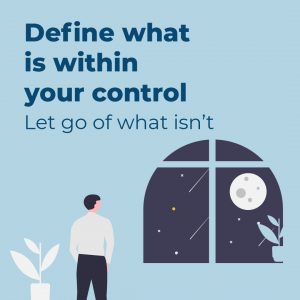
Another method is to appreciate how interlinked our overall health and mental wellbeing are. She explains that “the mind and body are linked drastically”, and our mind-set is what determines how we navigate all that comes our way. Finally, by learning to be kinder to ourselves, we can steer our thoughts away from the negative, “work on how you speak to yourself and what you choose to believe about yourself, and define what healthy means to you”.
As part of the greater wellbeing movement in Qatar, Asmaa hopes more people will recognise the importance of mental wellbeing in redefining our lives for the better. “Know where you want to go, but don’t set the expectation of what success needs to be, or what happiness should be. Being content and accepting are two pillars of resilience”.

The Education City Mosque is a modern spectacle.
For anyone driving through Qatar Foundation’s (QF) Education City, you cannot help but notice the minarets that rise 90 metres into the sky, pointing straight towards Mecca. “For Education City, the mosque serves as a reference point. It is almost like a compass”, describes Sulaiman Bah, Community Engagement and Outreach Coordinator for the Minaretein center (Education City Mosque) at QF.
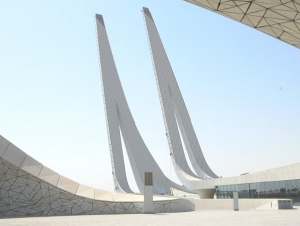
Education City Mosque Minarets
“They don’t look like your traditional lighthouse minarets”, explains Sulaiman, noting that they have been designed as ribbons enveloping the entire building. With one end of the ribbon representing knowledge and the other representing light, “there are several points where these ribbons overlap and meet, creating common spaces like courtyards and gardens”.
Having the capacity to hold 1,800 worshippers in the hall and another 1,000 in the exterior, the Education City Mosque serves as not only a daily prayer ground, but as a community mosque for the surrounding neighborhoods in the Al Rayyan area.
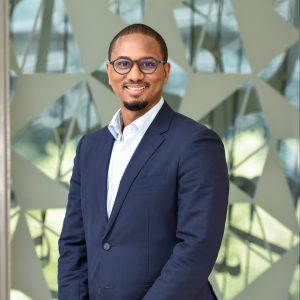
“It’s a place of reflection”, contemplates Sulaiman. “The building is one volume, it’s one mass, but the mosque actually features the university and vice versa. They’re inseparable. If you look at Islamic history, you will see there are so many other places where you have a combination of the ‘madrassa system’, where the mosque serves as the space for learning as well”.
Before taking up his role at the mosque, Sulaiman was a graduate student in the building. “I’ve grown with the building and seen the many changes. When I came as a student, I was inspired by the fact that there is no other university in the world that has a mosque of this capacity”.
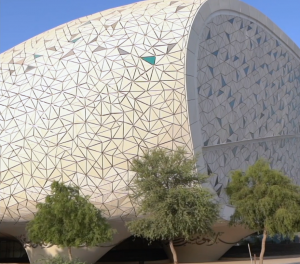
Having met the architects on multiple occasions, he’s learned more about the thought process behind the mosque’s creation. “They’re actually a husband and wife team”, Sulaiman recalls, “and when they got the offer to design a building that was at once a prayer space and also a learning space, they wanted to challenge people’s historical conceptions of what those spaces look like”.
The rising minarets, the built-in waterfall cascading in front of the prayer hall’s main entrance, and five foundational columns representing the five pillars of Islam, are among the distinctive elements that have made the mosque such a breath-taking sight. “If you’re an art lover, you may be attracted to the calligraphy and aesthetics. If you’re into architecture, you’ll be charmed by the fluidity of the building,” Sulaiman reflects. “The building has a little something for everyone”.
“I’ve always had the sense that people not only enjoy coming here because of the architecture, but because they feel that this is a place that cares about imparting knowledge and teachings”.
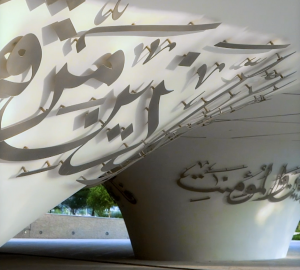
Banner photo by Julien Lavergne.
Ibrahim Mohamed Jaidah, Group CEO, Arab Engineering Bureau
Ibrahim Mohamed Jaidah has always had a love for art and creativity. As a child he would design houses for his cousins’ dolls and build miniature models out of wood, “I was already being commissioned as a child”, he joked.
It was at this young age, in the historic neighborhood of Al Jasra, that Jaidah’s passion for architecture was born.
After completing his studies in the United States, Jaidah came back to Qatar to experience the country’s architecture with fresh eyes. He says, “it was like rediscovering something that I hardly knew much about, even though I lived in it”.
With a reignited passion to both preserve and push forward Qatar’s architecture, Jaidah committed to defining the signature contemporary Qatari design. “I started studying the vernacular architecture from back in the day. I went back to that era and started redeveloping it and I realised there is a lot more than the shell of these buildings,” he says.
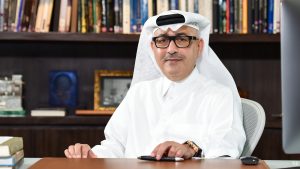
Ibrahim Mohamed Jaidah, Group CEO, Arab Engineering Bureau
Today, Jaidah is one of Qatar’s most renowned architects, whose designs reflect and exemplify Qatar’s cultural identity. His architectural footprint can be seen in some of the country’s most famous landmarks, including the Al Thumama Stadium – to be used in the 2022 FIFA World Cup.
When Jaidah got the call to compete for the design of the stadium, he knew he wanted to present something that would present Qatari culture to the event’s global audience. His Al Thumama Stadium is inspired by a gahfiya, a headpiece traditionally worn by Arab men.
“Imagine the impact the stadium will make to the hundreds of thousands of visitors that are going to come from all over the world to see how we managed to reflect our culture in the most contemporary, most advanced stadiums in the world,” he says.
Jaidah likes to regularly visit the site of Al Thumama Stadium, eagerly watching the construction of his vision. “I’m so proud of it and I can’t wait till I hear the whistle blows for the game to start”.
Jaidah’s designs feature motifs of Qatar’s vernacular architecture while embracing elements of modern design. Hand in hand, they have created a unique voice that speaks to Qatar’s rich history while also looking towards its future. “Learning from the past should not limit us to design that looks like the old architecture. We have technology that is available for us from all over the world,” he explains.
After acquiring the Arab Engineering Bureau in 1991 with six employees under his wing, Jaidah transformed it into a dynamic, award-winning firm with offices all around the world. He attributes the success of his firm to the progress of Qatar. Towards the end of the 1990’s, the country underwent a massive transformation with a building boom that began shaping its iconic skyline.
“I couldn’t be in a better place or a better time in our history. We are proud to be part of this growth. The most exciting part is that you make an impact not only on the construction of your city, but also on how you preserve your identity,” says Jaidah.
Qatar’s architectural landscape has reflected the enormous growth the country has experienced. From the distinctive buildings in Katara Cultural Village to the diverse skyscrapers that make up Doha’s skyline and the sustainable city district of Msheireb, every building in Qatar tells a story.
After an accidental detour, Bothayna Al Zaman stumbled across an old neighbourhood in Al Rayyan and was overcome with feelings of nostalgia, reminiscing on fond childhood memories of her grandmother’s house.
Doha’s modern architecture is known for its futuristic design and dominating high-rises. Tucked away throughout the city are Qatar’s older neighbourhoods, home to intricate buildings which incorporate traditional geometric shapes and motifs throughout their design.
As an artist, Bothayna couldn’t help but gravitate towards these neighbourhoods. Focusing on the main exterior, she was drawn to the unique doors crafted from either wood or metal and which she believes serves as a pathway to understanding Doha’s history.
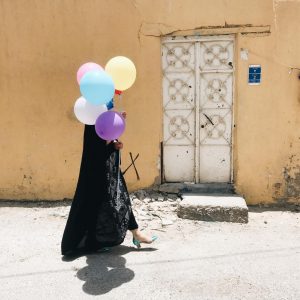
Bothayna launched an Instagram account dedicated to these doors, going by the name “100 Doors Qatar”. She explains that she hopes to “encourage the preservation of old neighbourhoods” and to document the history and culture of Qatari architecture for future generations.
“The pictures of the old neighbourhoods and doors are meant to give the viewers a nostalgic feeling, as they aren’t as commonly seen now due to modernisation,” she says.
While she started this project as a way to preserve Doha’s past, Bothayna was inspired to create artwork using photos from the 100 Doors Qatar, incorporating old Disney characters to add a dreamy feeling for viewers and breathe new life into the imagery. Those who would remember these characters will likely remember when these neighborhoods were brimming with life; the combination of architecture and familiar childhood characters result in a powerful artistic signature that has contributed to her work’s success.
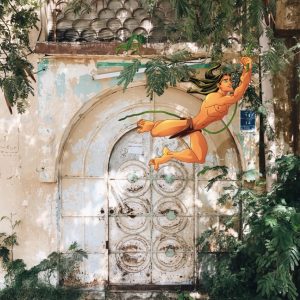
The old Al Ghanim and Um Ghuweilena neighbourhoods are among Bothayna’s favourite to photograph, as they contain the largest variety of buildings. Her favourite door is adorned with images of peacocks. She shared that while “most door patterns are repeated, I have only come across this one once”.
Bothayna’s creativity in 100 Doors Qatar has captured the attention of viewers globally and has inspired others to pursue a similar idea in their own countries.
Some may ask Bothayna’s goal when she reaches 100 doors? To continue.
With her goal being to preserve Qatar’s history, she admits that she intends to continue capturing the doors.
Vahid Suljic recognised a need for a lively online student community in Qatar and started on the road to create one in 2014.
Six years later, his platforms @Students_Qatar on Instagram and ‘Campus & Student Life in Qatar’ on Facebook share the stories and achievements by students from across Qatar.
In 2006, Vahid moved to Qatar to pursue a bachelor’s degree at Qatar University and then went on to pursue a master’s degree from Hamad Bin Khalifa University. Reflecting on his experience as a student in Qatar, he explained that he felt “honoured to be a part of this diverse and colorful society”. Following his educational journey, he then decided to call Qatar home.
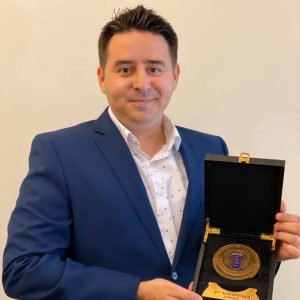
The motivation behind Campus & Student Life in Qatar is to create a community that can be used by current students in Qatar and international students looking to choose Qatar as the destination for their higher education.
From covering graduation season every May, to promoting the countless achievements by the student community, Vahid ensures his platforms have the resources students need to excel in one place.
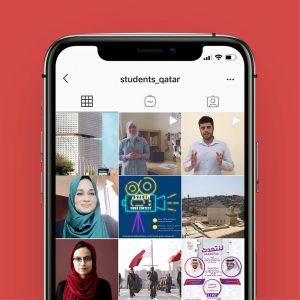
As a former international student himself, he knew exactly what the community needed to provide others: a centralised resource detailing student life in Qatar. Over time, with contributions from students themselves, the community began to flourish into what he calls “a rich well of information”.
Abdulgadir Mohammed, a Northumbria University student and budding entrepreneur recounts that “having such a community in Qatar is essential as it helps students find motivation through other’s achievements. Students Qatar helped me get the support needed to grow as an entrepreneur and as a student”.
In addition to providing a valuable stage for the student community in Qatar, Vahid shared that his platform’s reach extends beyond Qatar’s borders: “There are so many positive and groundbreaking things happening in Qatar that the world needs to know about. We want to be a part of the voice letting the world know that serious progress and world-class research is happening here”.
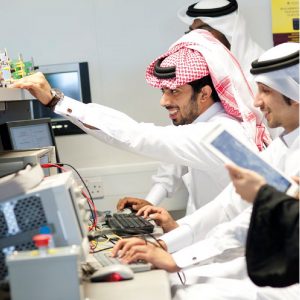
Education Above All Foundation
Through its Youth Advocacy Programme, Education Above All Foundation is empowering the youth of today to be the leaders and change makers of tomorrow.
Education Above All Foundation (EAA) enlists the help of eager young leaders through its Youth Advocacy Programme to help achieve its vision of bringing new life chances, real hope and opportunities to children and youth around the world. Ousman Camara, Al Dana Al Thani, and Ajlan Al Kaabi are some of the shining stars of the programme, helping to create sustainable and positive change worldwide by advocating for the right of quality education for all.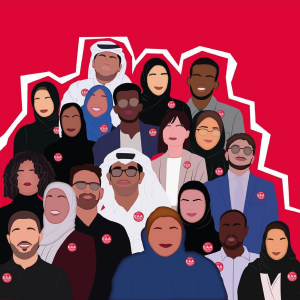
Although the youth advocates’ each have their own diverse backgrounds and stories, they share a strong passion for inclusive, accessible and quality education. Al Dana was 16 years old when she stumbled across the application to be a youth advocate and felt a deep desire to make a difference for gender equality in education. Ajlan, a student at Carnegie Mellon University in Qatar, joined the programme to work towards his passion of providing quality education to underprivileged individuals.
For Ousman, the aspiration to join the Youth Advocacy Programme was rooted in personal experience. He explained, “I have witnessed and experienced what it feels like to be deprived access to quality education. Growing up in both The Gambia and Qatar helped me understand the need to exercise my civic rights and the rights of individuals who do not have access to the privileges I have in Qatar”.
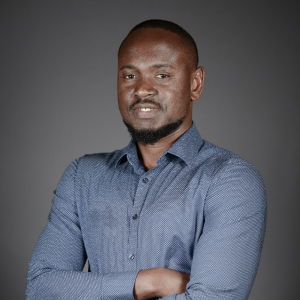
Ousman founded Educate a Generation Foundation which sponsors children to attend school in The Gambia
The programme provides training opportunities to build and grow advocacy skills and offers the advocates opportunities to participate in forums and youth networks on a national and global level. “EAA provided me with all of the needed skills to be an active member of the community. After understanding others’ struggles, I felt the need to do more to help every underprivileged child,” says Ajlan.
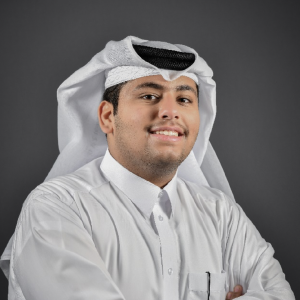
Ajlan is a co-founder of SDGeneration Network
Ousman, Al Dana and Ajlan are all vocal and powerful agents of positive change for their fellow youth and have taken action to improve lives through education. After witnessing an excessive amount of bullying in high school, Al Dana organised an anti-bullying initiative to combat negative attitudes and foster an open and accepting atmosphere that is ideal for learning.
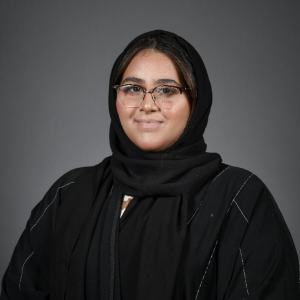
Al Dana started an anti-bullying project for high school students
Inspired by the important work of EAA, Ousman started his own foundation, Educate a Generation, to give back to his community in The Gambia. The foundation currently sponsors children and young adults to attend school and university. “My goal is to extend the privileges that I was lucky enough to have to others. It is crucial to allocate resources for individuals in need and create opportunities for one another”, he said.
Ajlan is committed to preserving our environment because he understands its ability to affect sustainable, human development around the globe. He was a member of the first Qatari team to win at the International Science and Engineering Fair last year for his research on converting environmental and industrial waste into value-added sensors.
These three advocates are contributing to their communities as partners in EAA’s comprehensive approach to education, which recognises that there are many barriers that communities face which challenge their access to education.
“The EAA campaign transforms members of policy-making entities, thought leaders, practitioners and members of the public into ’allies’ who truly embody the theme of uniting to protect education from attack,” says Ousman.
Earlier this month, EAA celebrated the inaugural UN International Day to Protect Education from Attack and affirmed the importance of safeguarding schools as places of protection and safety for both students and educators.
Her Highness Sheikha Moza bint Nasser, chairperson of EAA and UN Sustainable Development Goals Advocate, spoke during the first virtual high-level event for International Day to Protect Education from Attack: “Protecting the lives, education, and future of those children is a responsibility that the international community cannot afford to ignore; a test that it cannot fail. For in these times, our humanity is tested. Let us unite to protect education”.
Ahmad Al Kuwari, a coffee enthusiast and entrepreneur, built his Kava Koffee brand with the intention of bringing a new and unique experience to his customers.
He has created an atmosphere with a growing base of loyal patrons, which he likes to call the ‘Kava Family’. Ahmad ensures his customers feel as though they’re in a “comfortable, stress-free, no judgement zone” when they visit his café, located in Katara Cultural Village.
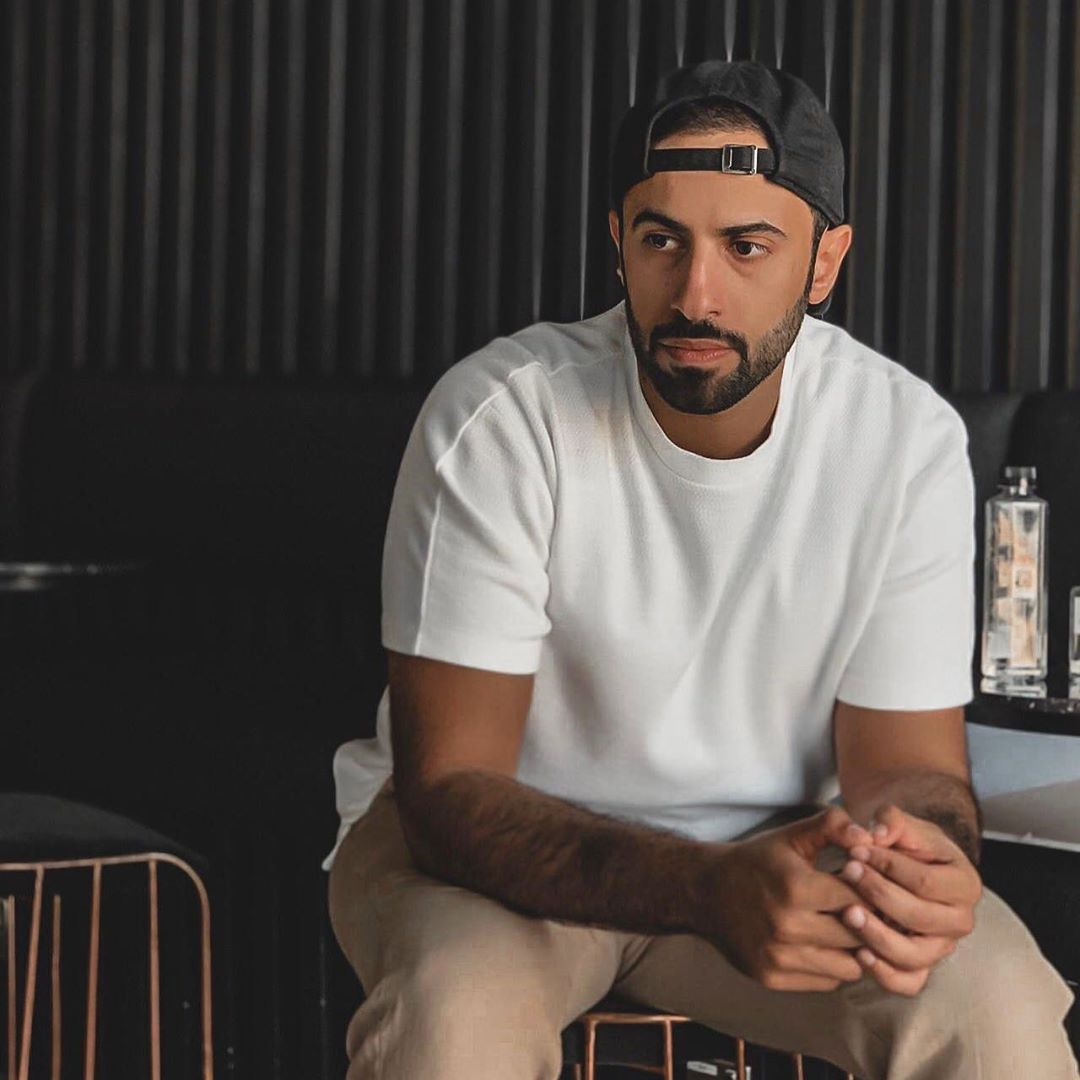
With a vast specialty coffee scene in Qatar, Ahmad had to figure out how to set Kava Koffee apart from the crowd. The hard work is in figuring out what your concept is and what values your brand stands for, he says. His dedication is reflected in the quality of his products and Kava’s faithful following.
Ahmad crafted the ideal environment by selecting staff who share in the ethos of Kava Koffee. A strong believer in his products, Ahmad says “I pride myself as a coffee enthusiast and do not accept a mediocre level of quality, so consistency is what we strive for”.
Having a “sky is the limit” work ethic, Ahmad has come up with innovative ways to expand his business. For example, selling Kava coffee beans along with all the tools one could need to make a perfect cup of coffee, as well as offering a catering service. Ahmad is making it easier than ever to enjoy great coffee wherever you are.
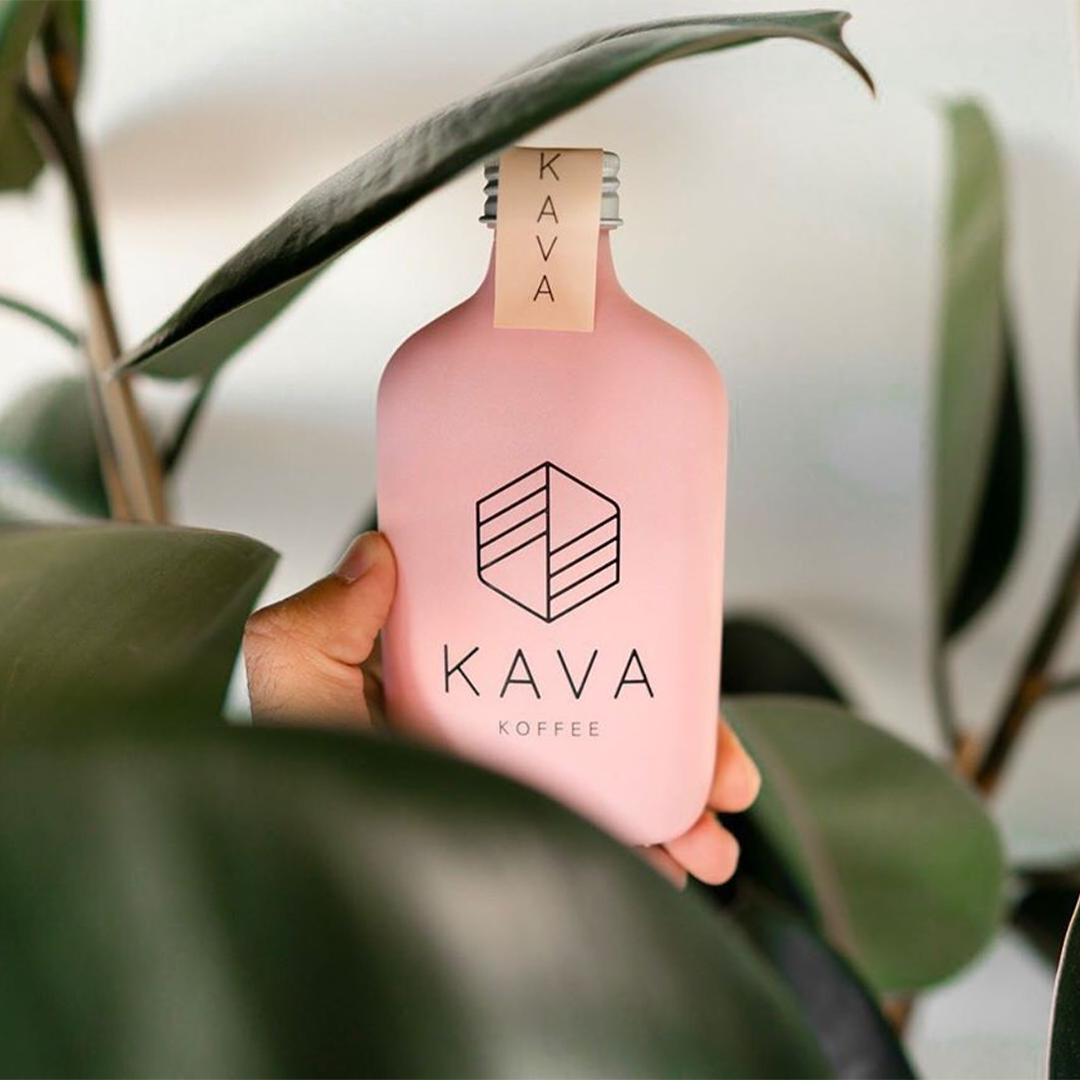
Their recent launch of the ‘Summer Ice Box’, filled with creative drink concoctions to enjoy in the Doha heat, is a great example of how the company continues to expand and diversify its product range.
Ahmad’s favourite way to enjoy coffee is through Kava’s signature “Split” experience, beginning with a single espresso, followed by sparkling water to cleanse the palette and finally, a piccolo. A way to appreciate coffee from black to white.

Coffee lover or not, you can also find alternatives to their caffeinated options, such as hot chocolates, ice teas and lemonades, accompanied by sweet and savoury food options.
What started as a pure passion and love for coffee has evolved into a staple for many in Qatar. Kava’s focus on its customers and innovation is what keeps people coming back.